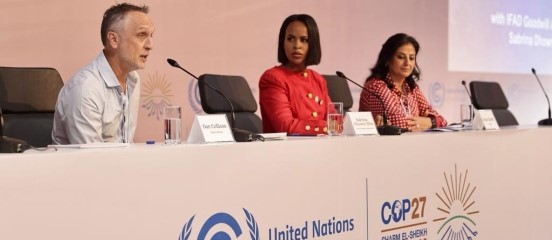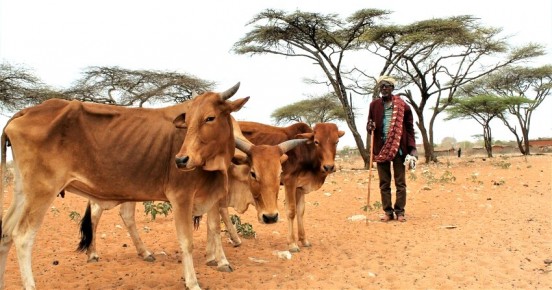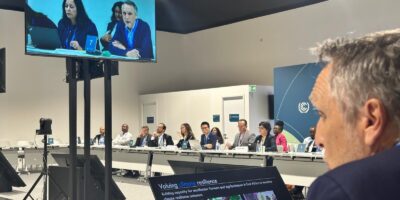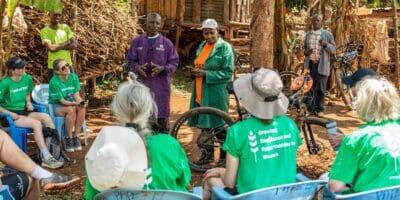Expert view
18 November 2022
Weathering the storm of climate change – Farm Africa at COP27

By Dan Collison, Chief Executive, Farm Africa
With the Gulf of Aqaba sparkling away to the east, and the jagged beige coloured mountains of the Sinai Peninsula rearing into the blue sky to the west, Sharm el-Sheikh is a long stretch of seaside resorts where this week the tourists mixed incongruously with the 35,000 delegates that arrived here for COP27.
Where COP26 took place in the shadow of the pandemic (and the driving rain of Glasgow) this conference has as its backdrop war in Ukraine, global fuel and cost of living crises, and here in eastern Africa the worst drought in 40 years, devastating the Horn of Africa with 30 million people in need of urgent food assistance.

Extreme climate events in 2022 have been repeatedly cited at the conference as indicators of climate breakdown. Not only the drought, but the floods in Pakistan, and soaring summer temperatures in Europe. The rhetoric – and the trends – are scary. When UN Secretary General António Guterres says “we are on the highway to climate hell with our foot still on the accelerator” you wonder how much more incentive we need to make radical change very quickly.
The fact the second largest contingent at the conference was the 636 lobbyists from the fossil fuel industries was not an encouraging sign, with opinion split on whether they were there to help chart the transition to clean energy, or to slow down negotiations on decarbonising at a crucial time.
At Glasgow the talk was all of “keep 1.5 alive” – but with the UN now saying that there is “no credible pathway” to achieving this limit to global warming (or the very best a narrow and closing window) then the next stop on the highway is how to adapt to higher temperatures.
A big focus for this COP was the increasing demand from developing nations for action on “loss and damage” – compensation for the cost of rebuilding after unavoidable climate impacts. As I write this on Friday, talks on whether to establish a loss and damage fund are still deadlocked, but a new proposal from the European Union may pave the way for a breakthrough.
One thing that dramatically marked COP27 out from its predecessors is the food and farming has been high on the agenda, and this of course made it highly relevant to Farm Africa. The impact of climate change on smallholder farmers and threats to food security were the subject of multiple panels and plenaries, and we were able to contribute our expertise and experience to these events.

As donors and policy makers look for ways to put adaptation into practice our work on climate smart and regenerative agriculture, and on integrated landscape management, is more important than ever.
We were able to share our experience in soil health, on forest and rangeland management, on carbon capture and livestock management.
A recurrent theme was how to ensure that the great sums of money invested in the global climate and carbon funds actually find their way to community level, and how Farm Africa’s work with cooperatives, producer groups, savings and loans groups, forest committees, and in de-risking smallholder production, provides a direct route for access to the finance the farmers need to achieve adaptation.
This was a theme we reiterated in a press conference we participated in along with IFAD and IFAD Goodwill Ambassador Sabrina Dhowre Elba, who attended the conference last Saturday.
So, in spite of the troubling weather forecasts, we left Sharm el-Sheikh confident that Farm Africa is bringing its experience and resources to bear in helping farmers weather the storm of climate change in eastern Africa – and with a wider network of allies to support our work.




